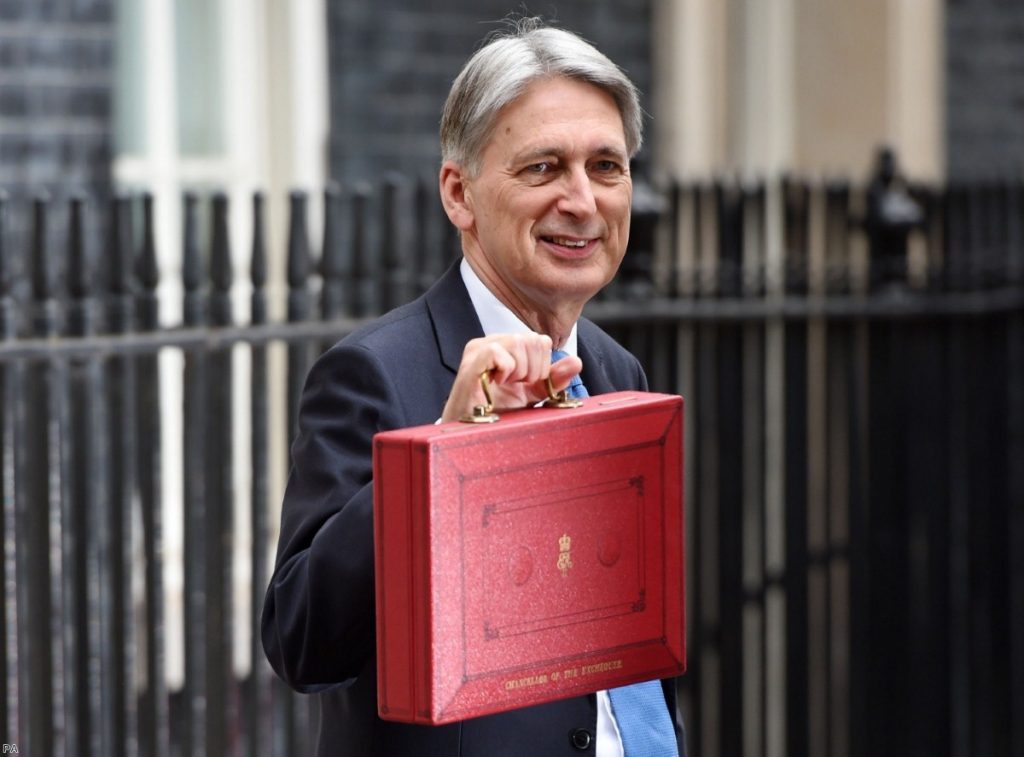A former chancellor has suggested that the Conservative and Labour parties are not being open enough with voters about the state of the public finances.
Lord Hammond, who served as chancellor under prime minister Theresa May from 2016-2019, said it was hard for elected politicians to make the case for “big, difficult, long-term decisions” because of the threat of being voted out at the next election.
Speaking to the BBC, Lord Hammond posed: “What would you cut? That is the question to ask any politician. What would you cut? And the politician who tells you we don’t need to cut anything, we are just going to do it by collecting a bit more of the tax that is due, making our public services a bit more efficient, I’m afraid is not being honest and frank with you.”
Asked if he agreed that neither Labour nor the Conservative parties were being open enough about the public finances, he replied: “I think we have a problem in this country that the electorate is not really willing to engage with this argument and it is very difficult to ask politicians to present the electorate with choices and challenges which are so stark that their reaction is oh, well I will vote for somebody who offers me a more palatable option.


“And unfortunately that is the challenge of democracy. How do you get big, difficult, long-term decisions made in a world where the politicians who are making them have to put themselves up for election every four or five years?”
***Politics.co.uk is the UK’s leading digital-only political website, providing comprehensive coverage of UK politics. Subscribe to our daily newsletter here.***
It comes after Labour revealed its plan to fund the NHS and school breakfast clubs earlier this week.
Shadow chancellor Rachel Reeves vowed to “take on the tax dodgers” to the tune of over £5 billion a year after chancellor Jeremy Hunt axed the UK’s tax breaks for non-doms at the spring budget last month — a measure previously touted by Labour as its flagship revenue-raiser for the NHS and school breakfast clubs.
The government has also come under fire with regard to its long-term fiscal plans.
Hunt has been accused of pencilling in steep cuts to public spending for after the election without setting out what that would involve.
Rachel Reeves vows crackdown on ‘tax dodgers’ to fund NHS and breakfast clubs
The prospective cuts, required to ensure the government meets its fiscal rule to have debt falling in five years’ time, involve cutting spending on unprotected departments — including courts, prisons and local councils — by around £20 billion, and cutting public investment by £18 billion a year in real terms.
Both the Labour and the Conservative parties have been criticised for failing to come to terms with that reality, with the head of the Institute for Fiscal Studies (IFS) accusing leading politicians of engaging in a “conspiracy of silence”.
Paul Johnson, director of the respected IFS think tank, has argued that the “government and opposition are joining in a conspiracy of silence in not acknowledging the scale of the choices and trade-offs that will face us after the election.”
“They, and we, could be in for a rude awakening when those choices become unavoidable.”
Speaking after Jeremy Hunt delivered the spring budget, Johnson went on to dismiss the chancellor’s stated ambitions to abolish employees’ national insurance contributions and increase defence spending to 2.5 per cent of GDP without further detail on how they would be funded as “unlikely”.
Politics.co.uk is the UK’s leading digital-only political website, providing comprehensive coverage of UK politics. Subscribe to our daily newsletter here.












